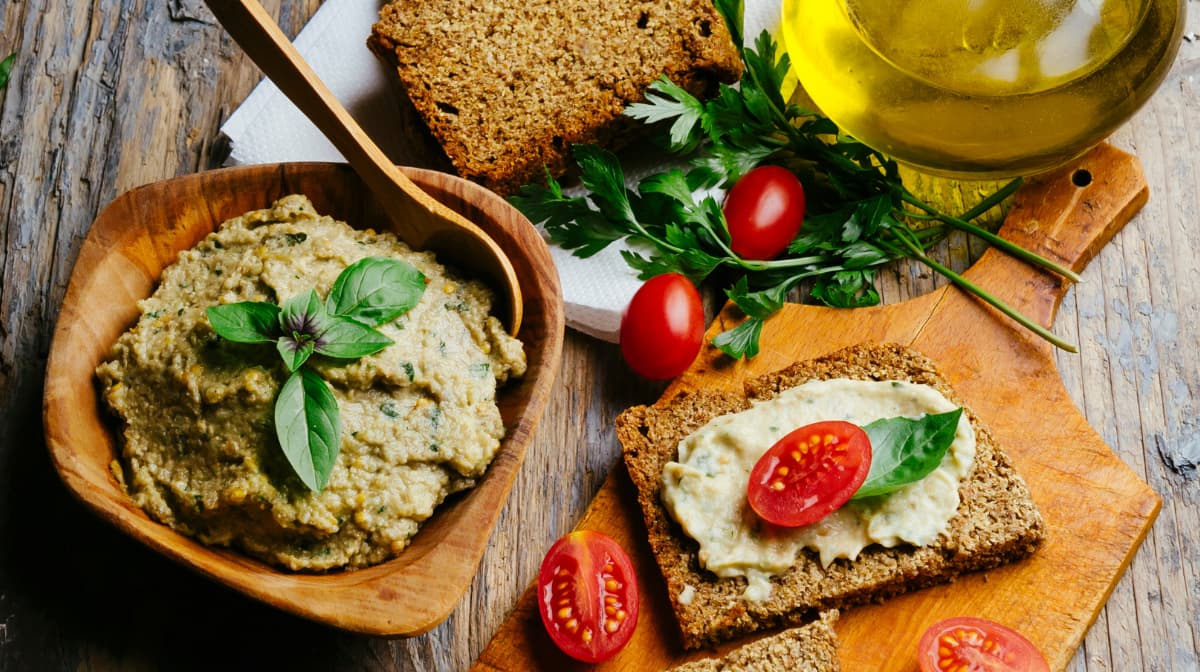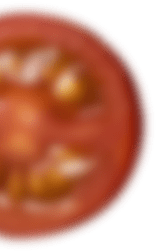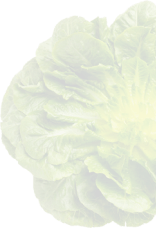

Mediterranean Food List
To make your transition to the Mediterranean diet easier, we have created a shopping list for you. You can download and print the list here so that you always have it to hand.
If you are allergic to one or more foods, please pay attention to the allergen labelling. If other foods are intolerable to you or you do not eat them for cultural, religious, ethical or personal reasons, continue to avoid them.
Vegetables
In the Mediterranean diet, vegetables are consumed in large quantities. The recommendation is: 2 portions* of at least 150 – 200 g per meal.
All types of vegetables are permitted and desirable, e.g:
- aubergine
- avocado
- Fennel
- Cucumber
- Young peas, green beans and sugar snap peas
- Carrots, parsnips and other beetroot
- Celery9, celery stalks9
- Cabbage (broccoli, cauliflower, Brussels sprouts, red cabbage, white cabbage, …)
- Leek, spring onion / spring onion
- Egypt
- Chard
- red chilli
- Mushrooms (oyster mushrooms, button mushrooms, …)
- Salad (lamb’s lettuce, romaine lettuce, rocket, radish, …)
- Asparagus (green and white)
- spinach
- tomato
- Pumpkin
Fruit
Fruit is also consumed in abundance and is often served as a “dessert”. Recommendation: 1-2 portions of 150-200 g per meal.
For example, how about this:
- Apple
- Apricot, nectarine, peach, plum
banana - Berries (blueberries, strawberries, raspberries, …)
- Pears
- Fresh figs
- pomegranate
- Cherries
- Kiwi
- Mango
- Melon (honeydew melon, watermelon, …)
- Grapes12
- Citrus fruits (lemon, mandarin, orange, lime, …)
Nuts and seeds
Nuts, seeds, and olives work well as treats or as part of a meal. 1 to 2 servings of 30g each are recommended per day.
Examples of leveraging diversity and providing access include:
- peanut5
- Hazelnut and seed cleaning (peanut perfection5, hazelnut perfection8, Tahini11, …)
- Hazelnut8 (cashew8, almond) a>, …)8 , walnut8, hazelnut8
olive - Seeds (linseed, sesame11, pumpkin, pine nuts, sunflower, …)
Pulses
Pulses are real nutrient bombs. Eat at least 2 portions of 150 g cooked pulses (equivalent to 50 g dry weight) per week.
These pulses are available to you:
- Beans (kidney beans, black beans, white beans, …)
- Dried peas (green peas, shelling peas, …)
- Chickpeas
- Lentils (beluga lentils, red lentils, plate lentils, …)
Lupins14 - Soya granules6, tempeh6 and tofu6
Healthy fats
Olive oil is clearly the number one in this category and should be consumed at least 3 tablespoons a day. High-quality vegetable oils are a good supplement:
- Extra virgin olive oil
- Pumpkin seed oil (cold-pressed)
- Linseed oil (cold-pressed)
- Rapeseed oil (cold-pressed)
- Walnut oil8 (cold-pressed)
Cereals and potatoes
(Wholemeal) cereal products and potatoes provide valuable nutrients and should not be missing on your plate. We recommend 1 – 2 portions of 40 – 80 g of cereal products with every meal and up to 3 portions of 150 – 200 g of potatoes per week.
Feel free to help yourself here:
- Amaranth, quinoa
- Bread1 (sourdough bread1, wholemeal bread1, …)
- Buckwheat
- Bulgur1, couscous1
- Oats1
- potatoes
- Pasta1
- Polenta
- Rice1
- Sweet potatoes
Herbs and spices
The Mediterranean diet thrives on fresh herbs and spices – so use plenty of them. Salt, on the other hand, should be used sparingly.
How about:
- Garlic and onions
- Spices such as coriander seeds, cumin, turmeric, paprika powder, allspice,
- Herbs such as basil, coriander, mint, oregano, parsley, thyme,
- Seasoning pastes such as ajvar, harissa and pesto
Dairy products
Dairy products are good sources of protein and calcium. We recommend 2 portions. One portion corresponds to 125 – 200 g of milk and dairy products or up to 100 g of cheese per day.
Take advantage of the wide variety of dairy products available:
- Cream cheese7 and ricotta7
- Hard and semi-hard cheese7 (Grana Padano7, Halloumi7, Manchego7, Parmesan7, Pecorino7, …)
Yoghurt7 (Greek yoghurt7, natural yoghurt7, …) - Milk7 (cow’s milk7, goat’s milk7, …)
- Vegetable drink (oat drink1, nut drink8, rice drink, soya drink6, …)
- Plant-based yoghurt (oat yoghurt1,6, coconut yoghurt6, soya yoghurt6, …)
- Quark7 and skyr7
- Soft cheese7 (burrata7, feta7, gorgonzola7, mozzarella7, …)
Fish and seafood
Fish and seafood are an important part of the Mediterranean diet. At least 2 portions of 100 – 150 g of fish or 200 g of seafood are recommended.
Make the most of the variety:
- Low-fat fish4 (trout4, cod4, carp4, redfish4, plaice4, hake4, saithe4, …)
- High-fat fish4 (herring4, salmon4, mackerel4, tuna4, …)
- Seafood2,12,14 (prawns2,12, crabs2,12, crayfish2,12, mussels12,14, squid12,14, … )
Meat and eggs
Meat and eggs are only consumed in moderate quantities in the Mediterranean diet. We recommend 2 – 4 eggs, 2 portions of 100 – 150 g poultry or rabbit, max. 2 portions of 100 – 150 g beef, pork or lamb** and max. 1 portion of 50 g processed meat** per week.
Here, too, there is a wide choice:
Cold cuts** (chicken breast, ham, turkey breast, …)
Eggs3
Poultry (chicken, turkey, …)
Rabbit meat
Lean beef or veal** (fillet, chop, roast beef, …)
Lean pork** (fillet, cutlet, natural schnitzel, …)
Lean lamb** (fillet, topside, loin, …)
Note: The less the better.
Allergen labelling
1: Cereals containing gluten
2: Crustaceans
3: Eggs
4: Fish
5: Peanuts
6: Soya bean
7: Milk
8: Nuts
9: Celery
10: Mustard
11: Sesame
12: Sulphur dioxide and sulphites
13: Lupins
14: Molluscs








